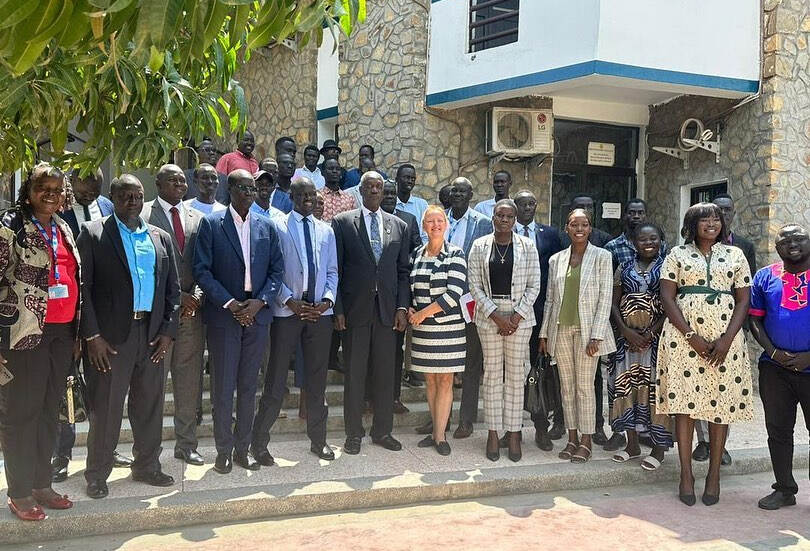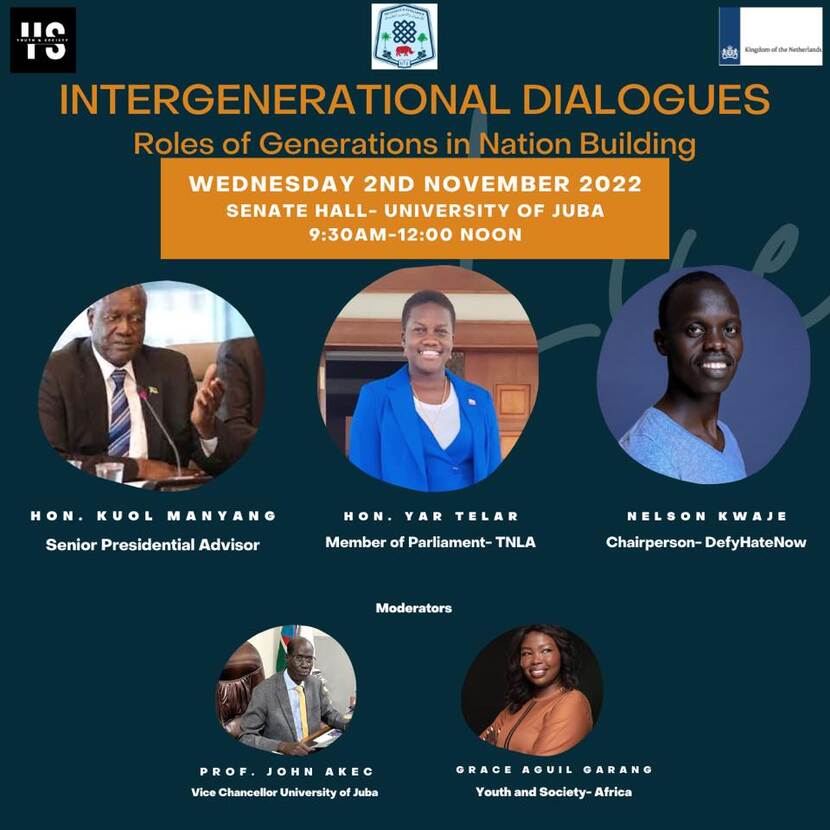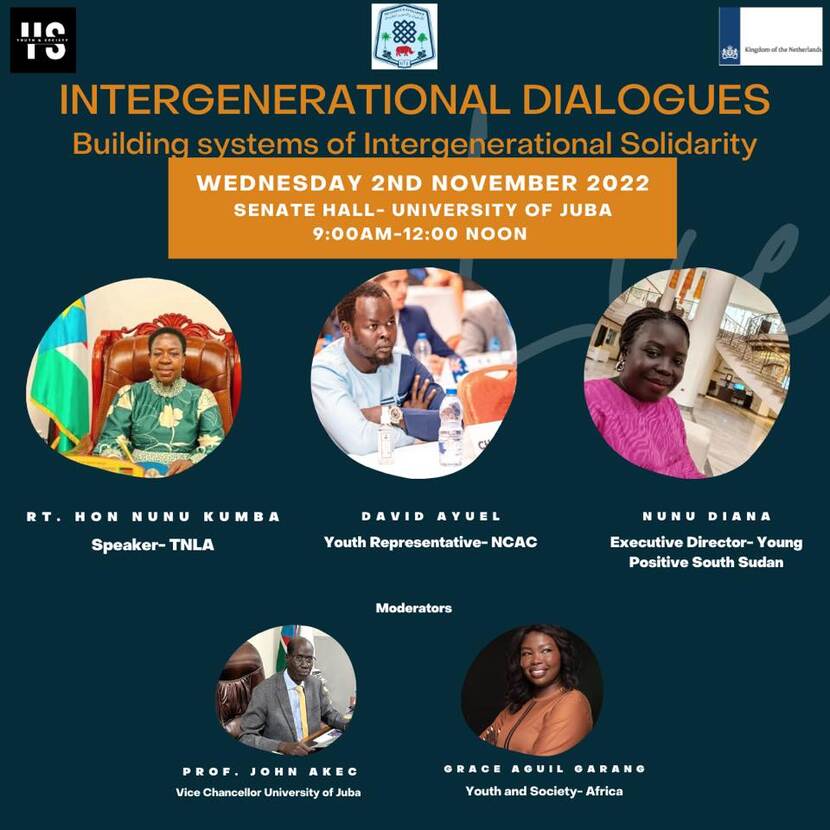Intergenerational Dialogues in South Sudan: bringing generations together to build a peaceful nation
On November 2nd, 2022, The Embassy of the Kingdom of Netherlands in South Sudan, in partnership with Youth and Society- Africa and the University of Juba conducted the first ever Intergenerational Dialogue in South Sudan on “The Role of generations to Nation Building in South Sudan”.

With up to 70% of the population of this young country under 35 years, South Sudan still experiences an inter-generational disconnect where the young and old feel misunderstood and/or underappreciated for the critical role they play in socio-economic development.
The day was opened by the Netherlands ambassador Marjan Schippers and the National Minister of Youth, Dr. Albino Bol. Moderation was done by Grace Aguil Garang (member of the youth advisory committee of the NL MFA, and executive director for Youth & Society-Africa, a youth-led organization), and by Prof John Akec (Vice Chancellor of the University of Juba). The day was live broadcasted. You can be rewatch the Intergenerational Dialogue Day on Nation Building here.
Hon. Kuol Manyang spoke of the history of Sudan and South Sudan, from the origin of Sudan as a country, and the role of young people in the liberation struggle. According to him, ‘History is the way of transferring knowledge from the past to explain the present and help define the future. The war of South Sudan was fought by young people to liberate South Sudan from Sudan. They also led the peace talk toward the Addis Ababa peace agreement to give self-rule for the people of Southern Sudan.’ He iterated on the importance of peace building and hard work amongst young people for development of country and the need of investment in young people's skills and education to tap on the economic development of the country.


The dialogue gave an opportunity to discuss the effects of the rapid technological change, shifting geopolitics, climate change seen in floods and famine and the existing competition over scarce resources. ‘From 2015 to 2035 the number of people of working age in Africa will rise to 450 million, and without strong institutions and a working economy to create jobs this will be a recipe for political instability, wars and crimes’, said Prof John Akec.
The youth panelists and speakers spoke on the importance of open civic spaces and how young people need better education and a curriculum that allows them to meet the changing labour market needs such as jobs in clean energy, smart agriculture and opportunities in international trade due to globalisation. Nelson Kwaje stated that ‘If the previous generation's fight was to gain liberation from Khartoum (Sudan), I think this generation's fight is to pursue their dreams and to fight against poverty.’
However to achieve this it is important to ensure meaningful youth participation in decision making and leadership roles in politics through policies and legal framework that supports young people. Moreover, the need to strengthen and depoliticize youth institutions through unity and have intra-generational dialogues between young people themselves to take up leadership roles that supplement the Intergenerational Dialogues.
The Netherland Embassy in South Sudan in partnership with Youth and Society- Africa aims to continue these dialogues quarterly to provide forums for young people and their seniors in order to build trust, understanding and optimally utilize the potentials of all generations in order to foster political, societal and economic transformation that South Sudan so desperately needs.